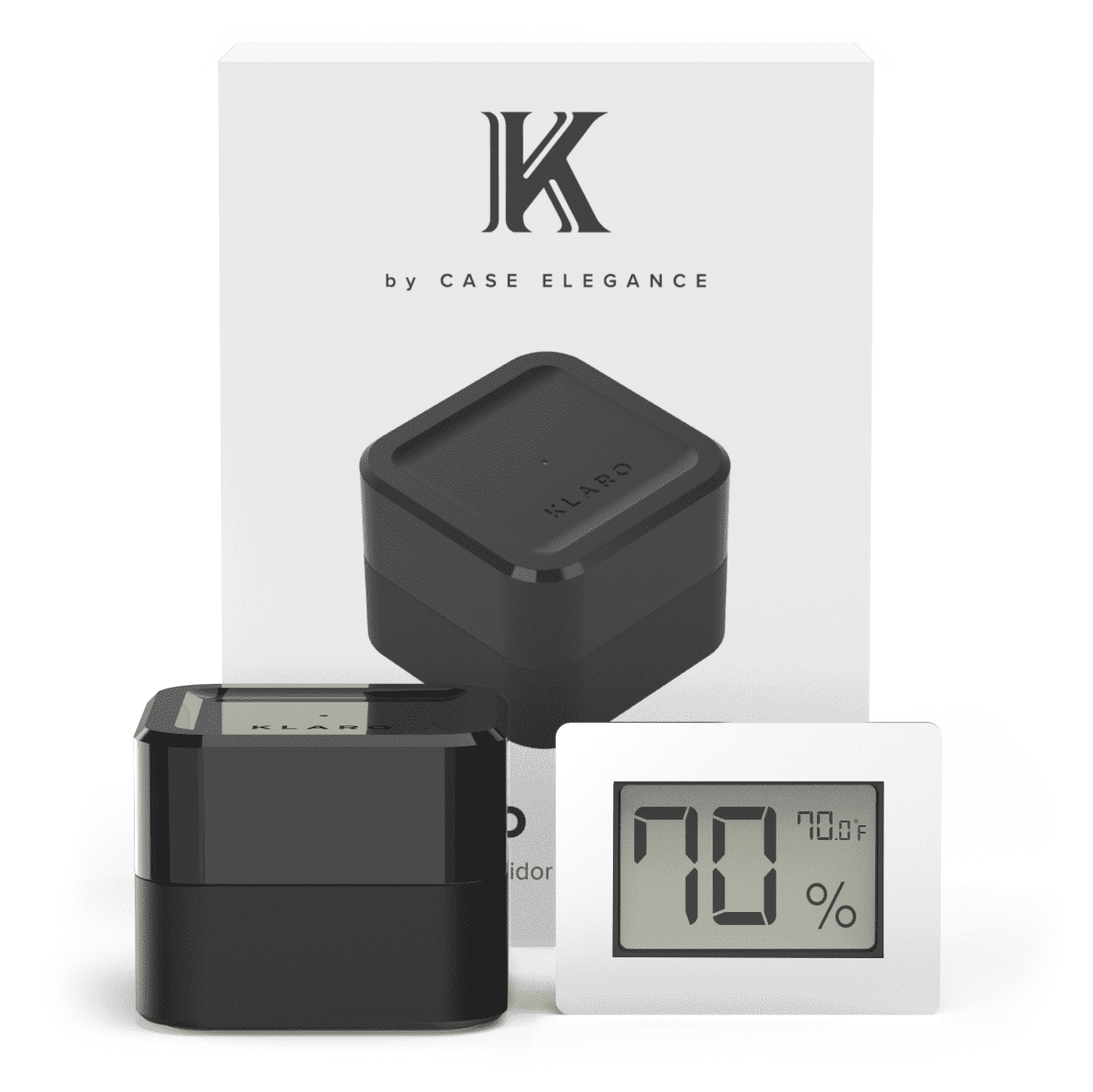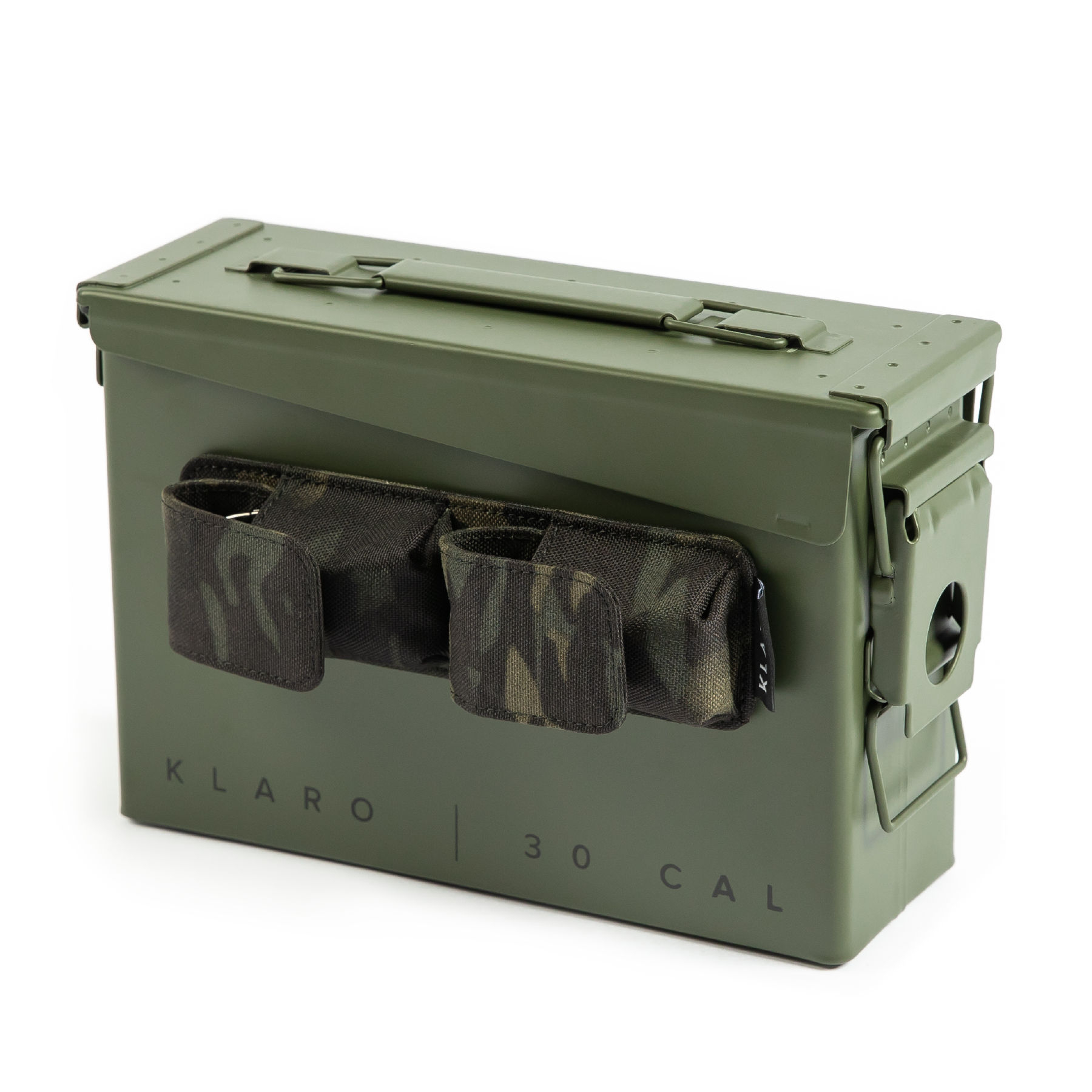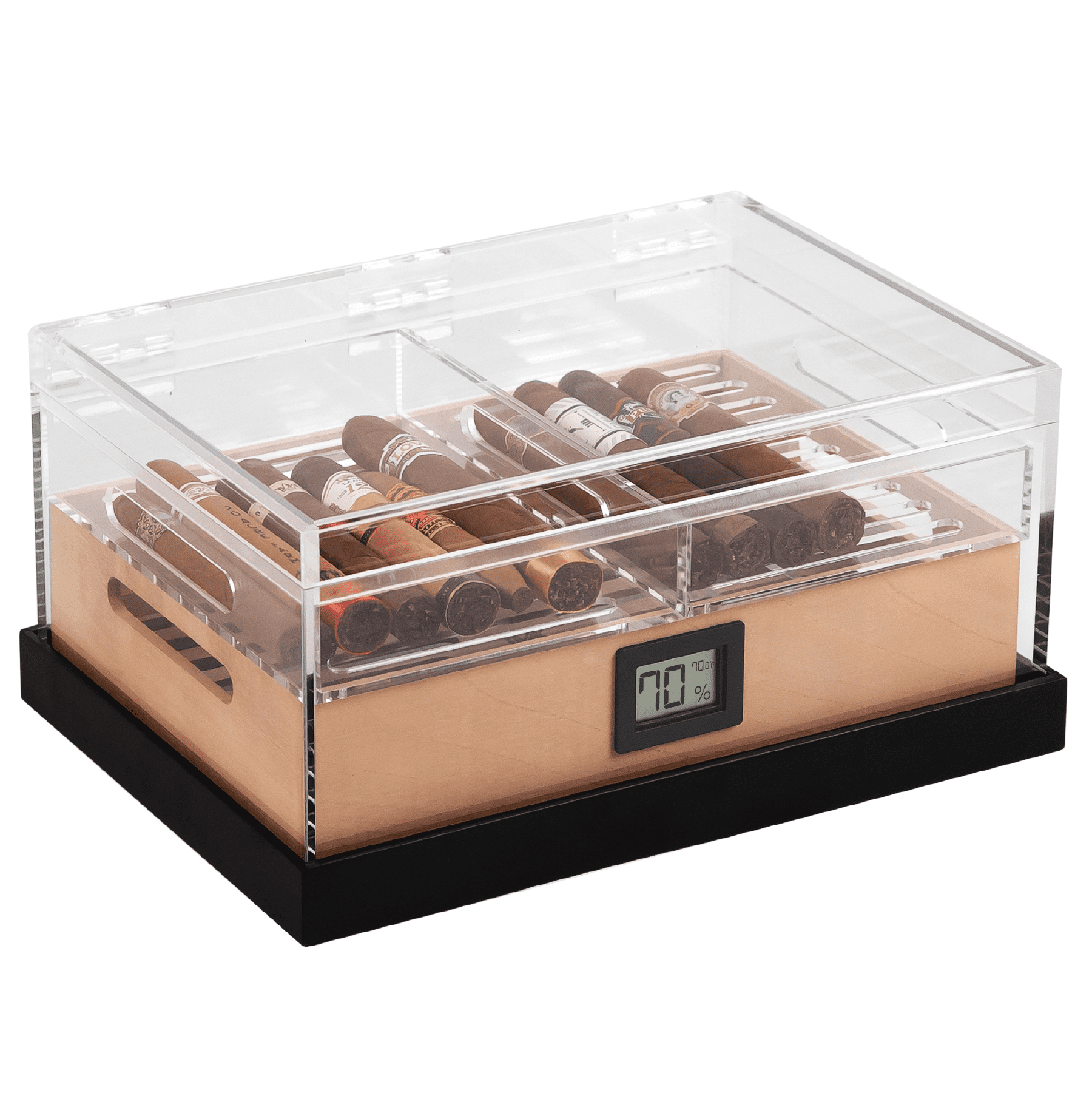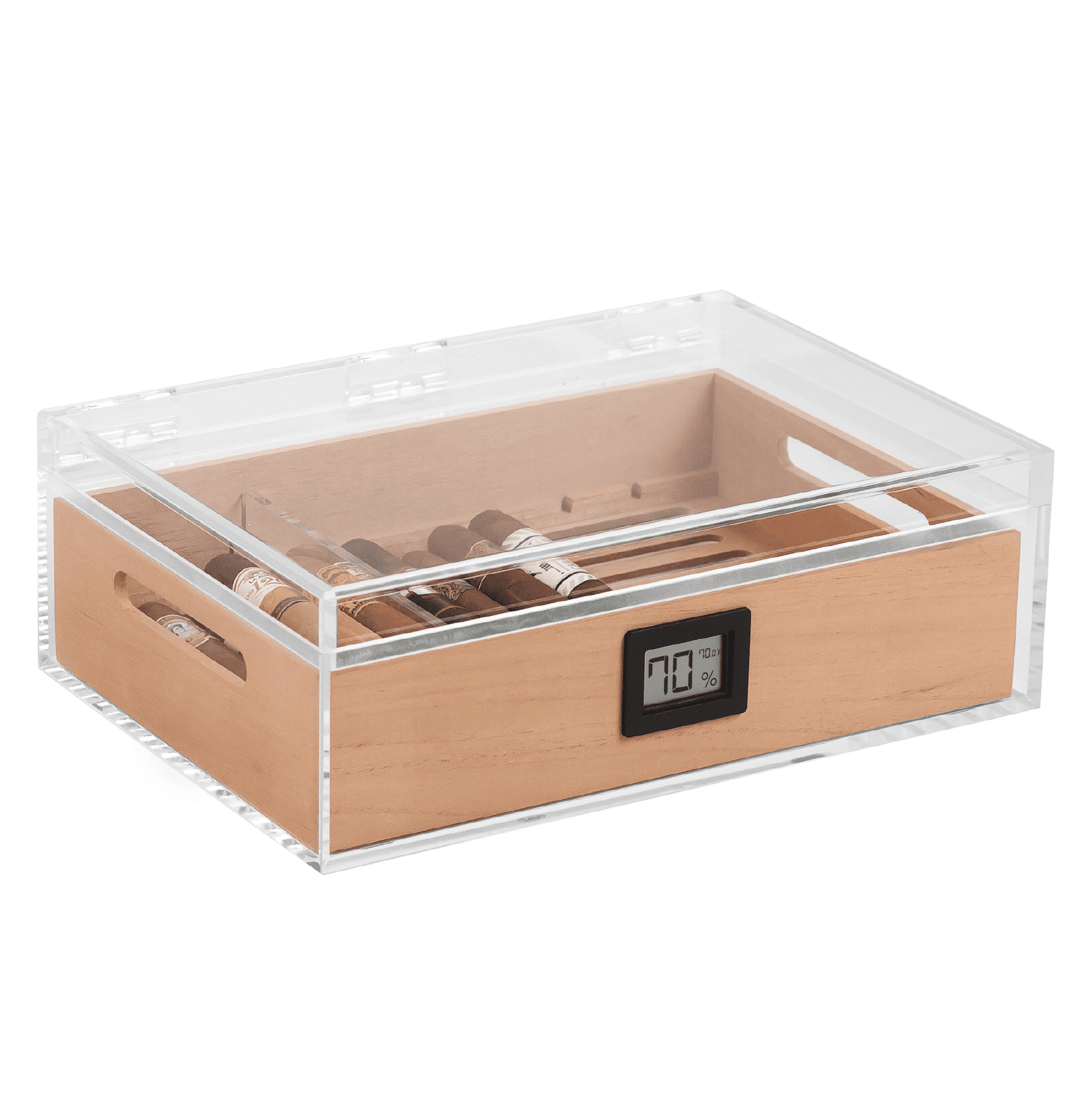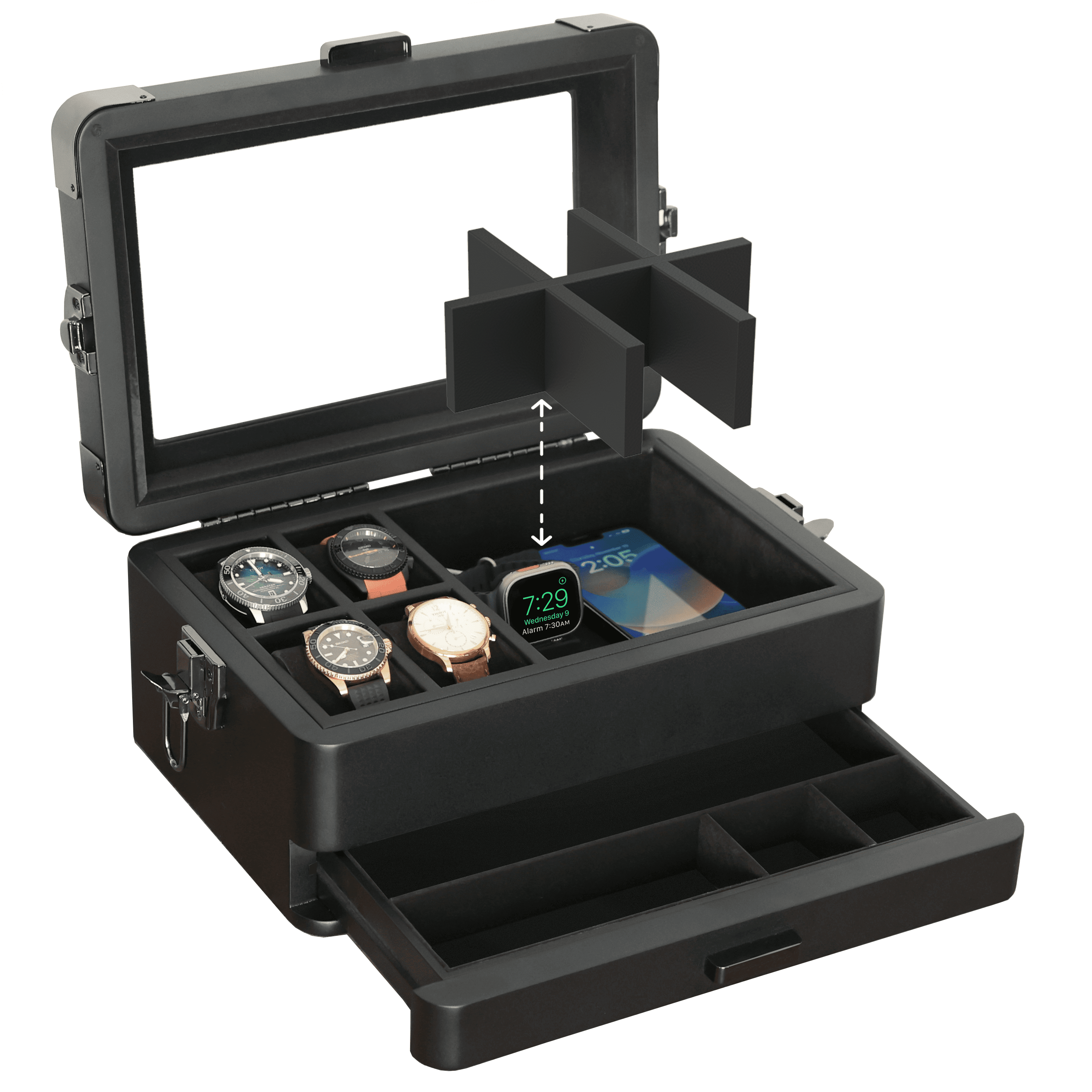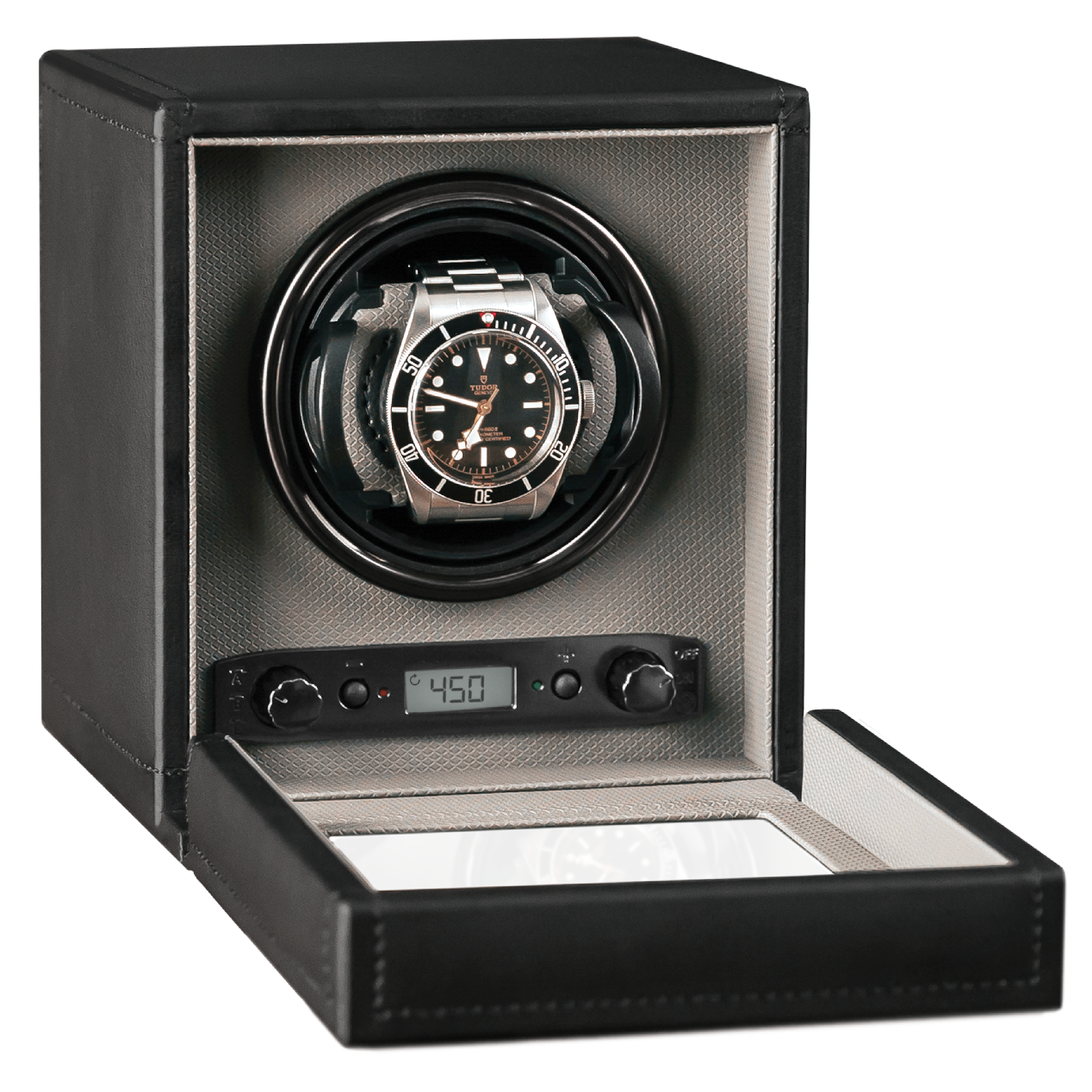At some point in your journey of cigar appreciation, you’ll move from “smoke them as you get them” to “stockpile them just in case.” You may not be the type to smoke a cigar every evening—or even every week—and that’s ok. Fortunately, many cigars age fabulously under the right conditions. In fact, many aficionados believe that cigars can actually improve in flavor profile over time.
The big caveat to all this is that they have to be stored in the right conditions. If you’re at the point of buying cigars to hang onto for a while, you already have a humidor. (If not, you should seriously consider adding one to your desk.) And if you’re planning to age your cigars over time, there’s no better place to do it than in a humidor.
Fortunately, maintaining the right humidity levels inside your humidor is easy. It just takes a little time, care, and awareness.
How to Age Your Cigars
Aging cigars is easy. In fact, the hardest part might be developing the patience to not smoke them sooner.
The first important—and often overlooked—step in aging a cigar is buying multiple of one kind. Five or more is a good suggestion. Smoke the first one and enjoy it. Note the tasting profile. As it ages, this will change. The change might not be dramatic, but to really appreciate an aged cigar, you have to have a baseline for what the cigar tastes like fresh. If you really want to geek out about it (and why wouldn’t you?), take notes so you can compare at a later date.
Place all of your cigars inside the humidor. As long as the humidor is at the right humidity level (more on that below), the cigars will age beautifully.
The flavor profile of a stogie can change in as little as two weeks, and some suggest smoking them at regular intervals so you can note the changes. If you really want to hold out, you can let your cigars go for much longer than that. Early on, especially if you’re new to it, it’s recommended to smoke them all within a year. That way, you can decide if you want to take the aging experiment even farther in the future.
Maintaining the Right Humidity to Age Cigars
While they come in all shapes and sizes, the most beautiful part of a humidor is its simplicity. It works by simply utilizing a lining of Spanish cedar—a particularly absorbent type of wood—and some form of humidor humidification. The lining absorbs the humidity and the box “breathes,” which allows the cigars to maintain a particular level of freshness.
But in a humidor improperly cared for, your cigars don’t stand a chance. Too dry and stogies become brittle and acrid. Too humid and they grow soggy and, worse, they may mold. No one wants that. And once your cigars have reached this point, they might be able to be recovered—but aging them beyond that may be futile. You’ll never know the flavor profiles that could have been.
Ideally, your humidor will maintain a humidity range of between 67 - 72 percent. Properly seasoned, you shouldn’t have any issues maintaining that range. Some humidors, especially larger ones, often include a built-in hygrometer, which helps you measure the humidity. Others require you to place a hygrometer inside the humidor.
That said, some experts suggest that a range between 63 - 68 percent is more ideal for aging. The lower humidity level allows oils to concentrate on the tobacco and provide a more precise flavor—while also reducing the (already small) likelihood of mold. If you’re new to a humidor, shooting for 68 percent is a good goal.
Measuring the humidity is easy. The process for getting there, on the other hand, may vary depending on your humidor.
Many people like using a popular two-step humidification process in their humidors. In our research, we’ve found that those work well in very small humidors, but for anything larger—like a humidor you plan to age several cigars in—you need a specific process. We developed a seasoning process to work specifically with our Klaro humidors.
We use a simple 10-step seasoning process to get your humidor into an ideal shape, which you can read more about here. We also developed a unique solution to create an optimal environment for your cigars. Whichever option you choose, make certain your solution doesn’t include salt. Especially for long-term aging, salt can alter the flavor of a cigar in unfavorable ways.
Check your humidor’s humidity regularly. If you notice significant swings or dips in humidity levels, it may be time to reseason.
How Long Can You Age Cigars?
There are lots of schools of thought on aging cigars. Just like wine, some cigars age better than others. Not every cigar will taste better as it ages—and you may not prefer the flavor profiles that age produces. All of this is perfectly fine. You’re learning what you like.
Many cigars can age easily up to a couple of years in ideal conditions. Some push their cigars as many as five or six years.
Yet some others—who clearly have the patiences of saints—suggest that some cigars will continue to age well and change in flavor profile for up to 10 years.
Even further, some particularly famous cigar shops have cigars that are over thirty years old. Granted, those cigars are kept in an environment that’s precisely maintained by machines—something you’re not likely to have in your home.
That’s a long time to wait to enjoy a stogie, but if you’re patient and love an experiment, have at it.
Some Notes on Aging
Aging isn’t a precise science. While some very smart cigar aficionados have spent a lot of time and effort, there are no guarantees in how your cigars will turn out when you decide to smoke them. That said, here are a few things to keep in mind as you’re aging:
Cigars designed to taste “full-bodied” are more likely to age better than those with a milder flavor profile. Full-bodied cigars are often made with stronger tobaccos, like ligero.
If you don’t like how a cigar tastes initially, it’s pretty unlikely that you’ll come to like it with age on it. Some flavors may get more subtle, but the core flavor profile won’t change much.
Some cigars are aged by the blender. These cigars should be smoked right out of the box—further age won’t do much.







